 At the time of climate change and crises of capitalism we need to drop our sense of entitlement to comfortable life or even to life at all. Nature will not spare us just because we are humans. When the meltdown of economic and environmental systems occurs, we are all going down: humans and non-humans, women and men, spiritual or not. We have almost run out of time.
At the time of climate change and crises of capitalism we need to drop our sense of entitlement to comfortable life or even to life at all. Nature will not spare us just because we are humans. When the meltdown of economic and environmental systems occurs, we are all going down: humans and non-humans, women and men, spiritual or not. We have almost run out of time.
Victor Pelevin, my favourite contemporary Russian author, has a novel called “The Sacred Book of the Werewolf“. I love it in part because, like Kill Bill, it is a rare creation by a male author, which manages to capture the female warrior spirit.
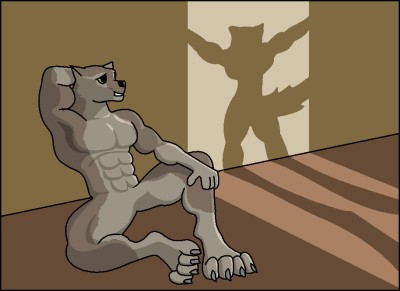 It starts with the main character, a Chinese Buddhist Were Fox who lives in present-day Moscow, consoling herself: “What else (or What the fuck) did you expect from life, A Huli?” A Huli is her name, supposedly meaning Fox A in Chinese. It is also a swear phrase in Russian, meaning “What the fuck?”
It starts with the main character, a Chinese Buddhist Were Fox who lives in present-day Moscow, consoling herself: “What else (or What the fuck) did you expect from life, A Huli?” A Huli is her name, supposedly meaning Fox A in Chinese. It is also a swear phrase in Russian, meaning “What the fuck?”
What A Huli means is that she has made a mistake of grasping at a sense of entitlement, expecting life to be easy, or happy – or even being at all. None of that is natural, realistic, or fair. As Rodney Smith of Seattle Insight Meditation Society says: “Look around. Life is not fair.” If you have any doubts, just switch on a wild life channel.
This sense of entitlement is one of the characteristics of the patriarchal worldview. Men and those high up on the pecking order feel life owes them something. Women owe them. Social inferiors owe them. Environment owes them.
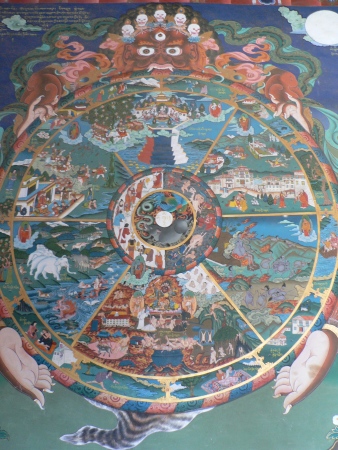 Rodney Smith teaches that in Buddhism, everyone is unique – but no one is special. If this sounds too harsh to you, let’s re-phrase it: “Everyone is special. No one is superior to anyone else.” In the Buddhist samsara wheel, the human realm is just one of the six possible realms. Each human is the result of their karma: no more, no less. Each is equally capable of attaining nirvana.
Rodney Smith teaches that in Buddhism, everyone is unique – but no one is special. If this sounds too harsh to you, let’s re-phrase it: “Everyone is special. No one is superior to anyone else.” In the Buddhist samsara wheel, the human realm is just one of the six possible realms. Each human is the result of their karma: no more, no less. Each is equally capable of attaining nirvana.
For a super-quick round-up of the patriarchal feeling of entitlement watch this Why Are Vegetarians Annoying? video. The gist of it is that the vegetarians are annoying because there are intellectually and morally right, yet the author of the video insists on his choice to still eat meat. The reason? Because “it’s simpler”.
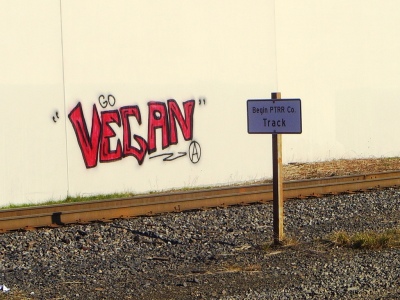 This video does not come from a channel by some fundamentalist right-wing bigots. The channel is mid-of-the road politically, even with a slight slant to the left, and intellectually it is a cut above most of YouTube channels.
This video does not come from a channel by some fundamentalist right-wing bigots. The channel is mid-of-the road politically, even with a slight slant to the left, and intellectually it is a cut above most of YouTube channels.
What is most dangerous about this sense of patriarchal superiority is that it is not the purview of macho marginals. It is the blood and bone of our everyday life.
I have read the memoirs of a Russian rock star. Currently, this musician opposes the nationalist militarist homophobic regime of Putin. In particular, this man criticises Putin’s actions in Ukraine, for which he is now facing a smear campaign in media. So, just to be clear, a decent man, a talented musician, a conscientious person.
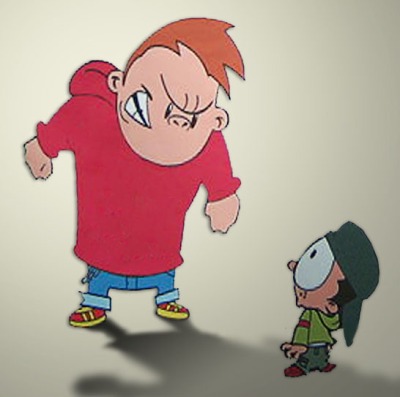 And yet, his memoirs read like a history of violence and subjugation. Growing up after WWII in the Soviet Union, this boy abused everything that was weaker than him. He caught and killed insects. He befriended another boy, impressed by the latter’s confession that he had tried to tear a cat apart. After being bullied by older boys, he went and bullied an old female dog.
And yet, his memoirs read like a history of violence and subjugation. Growing up after WWII in the Soviet Union, this boy abused everything that was weaker than him. He caught and killed insects. He befriended another boy, impressed by the latter’s confession that he had tried to tear a cat apart. After being bullied by older boys, he went and bullied an old female dog.
As a teenager, on learning that his Mother had a baby girl, he was heart-broken. A little later he put his leg out when his Mother was passing carrying his sister, and it was only by miracle that the baby was not hurt. The author blames this action on an evil spirit that possessed him. This sounds a lot like a rapist’s excuse: “She made me do it!” This same sister later cared for their Father before his death, while the author of the memoirs was away on tours.
While at school, the initial members of his band were girls. However, he did not consider this a proper band, so he discarded the girls and got together a team of boys, which stuck as his very successful rock band. He also mentions, in passing, a number of female lovers to which they were almost entitled as a rock band.
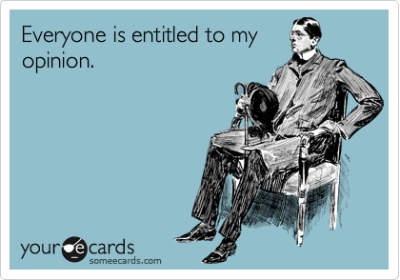 I am wondering why this person was so surprised when his country invaded Ukraine, which is considered inferior in Russian public opinion, when for his whole life he has treated half of humanity – women, – along with non-human animals, as inferiors?
I am wondering why this person was so surprised when his country invaded Ukraine, which is considered inferior in Russian public opinion, when for his whole life he has treated half of humanity – women, – along with non-human animals, as inferiors?
Both men and women buy into the hierarchy of bullying that is patriarchy. Once you enter, you have to oppress. Some people currently see kindness as weakness and pounce on the kind person as an easy prey. Women oppress to make up for the humiliation and lost opportunities they had to face in life. Parents are divided into carers and creative inspirers. Siblings are divided into creatives and carers.
How do we teach our sons and young men that what we do for them is out of love, not because they are special? How do we stop them in their tracks when they start venting their anger at the system by hurting those weaker than they?

How do we get across the message that under patriarchy everyone loses out, except the 1 percent? And these people probably already have bunkers built for the event of environmental collapse.
Human is not superior to nature. Humans are not superior to each other – by gender, race, class, education, nationality. Or even spirituality. That rock musician believes in God, defines creativity through proximity to the Lord and had mystical experiences. However, just because you have access to the world of the spirits, you do not necessarily understand it or have any right to decide what is better for other human or non-human beings.
Oxana Poberejnaia is a content writer at http://content4you.org. She was an Officer of the University of Manchester Buddhist Society while studying for a PhD in Government, and has been involved in organising the Manchester Buddhist Convention, now in its 10th year. Oxana is now exploring the Sacred Feminine through marking seasonal festivals, working with her menstrual cycle, frame drumming and shamanic journeying, while keeping the practice of Buddhist meditation. Oxana is an artist and an author. Her works can be found on her blog.
http://poeticoxana.wordpress.com


Amen sister. Either all beings in the web of life are special or none are!
Americans have a particular problem with this idea, not only are we taught that men are superior to women, whites to blacks, and humanity to nature, but also that as Americans we are extra special and different than all other nation states. Pardon me while I throw up.
LikeLike
Thank you so much, Carol, you are so kind! Yes, and feelings of national superiority are usually drummed up in every country that faces a crisis of some kind, for instance, an economic one and one of political will and public morality, as the case is with Russia at the moment.
LikeLike
A wonderful and insightful post (in my early morning fog I almost write “inciteful” and then changed it, but it is that, too!). (And Carol, your “pardon me…” made me laugh!) Entitlement on so many levels is so ingrained in our society and so rarely do those who feel most entitled see that what they consider to be the established, even natural, order is, in fact, their own irrational sense of entitlement. Sometimes I also see fear behind the sense of entitlement to some degree – fear of death or their own loss of their sense of self – created, or at least exacerbated, by the entitled society we live in where we can’t count on the community to take care of us if we lack income, have a physical or mental disability, or are vulnerable in some other way and where our sense of worth comes from things like wealth and social standing that can disappear overnight. By pretending that they are entitled to what they feel they need to survive, they avoid facing the reality that none of us is “entitled” to survive, as a species or individuals. This isn’t in any way an excuse for entitlement or its results, but just a thought that one way to help in making this destructive sense of entitlement dissipate is to continue to work together to create a world where relationships to each other and to all beings are of utmost importance, where we all truly do take care of one another, all beings, and the earth, and where each person is respected for who they are rather than what they have and over whom they have power.
LikeLike
Dear Carolyn, thank you so much for reading and for insightful comments! I know. The whole economics of capitalism is based on the sense of entitlement directed at Nature – as it is expected to provide unlimited resources. Economy is then seen as the stage where capital “moves” and markets “react” and the whole thing becomes this insane virtual casino, which collapses regularly, taking people down with it. Conversely, economy should be seen as the stage where people make life for human and non-humans comfortable, long, prosperous and healthy. And as you say, through relating to each other.
LikeLike
Thanks, Oxana, for this insightful post. Your thoughts and Carolyn’s on entitlement remind me of some of Starhawk’s writing in _Truth or Dare_. She says, “[Patriarchy] may seduce us by offering us a falsely inflated sense of value. Soldiers go to war for defense, but also for glory. Glory is a form of value not rooted in the idea of the immanence of the sacred, or in a sense of connection with all of life, but in the sense of specialness, or set-apartness, of disconnection that removes the hero from the common ranks. [This] false glory is addictive. In war, the foot soldier is expendable. In [this patriarchal] realm, ordinariness equates with death. Without immanent value we have no inner assurances of survival. On the battlefield, where death becomes the norm, survival is only for the special.”
LikeLike
Thank you, Nancy, for your thoughtful comment. Yes, I know. This dichotomy of her vs ordinariness has become especially prominent in our age, with all these reality TV celebrities and YouTube “watch-me-as-I-go-about-my-day-hoping-to-get-famous channels”. However, the core issue is always the same: it is as my 7-year-old daughter has said only today: “It is more difficult to be good than it is to be bad”. It has always been this way. People either make effort – to believe, for one thing. Or they don’t. People who do not make an effort fall back on what The Man of their given society wants of them – and that’s it. No change for the good is then possible. People who make an effort to believe make that leap of faith where they don’t feel the urge to be heroes, yet they become ones through their actions and words.
LikeLike
Actually, Oxana, I think the whole concept of “hero” is tarnished by the warrior ethos that it comes out of. We need to realize our commonality AND our uniqueness, but the uniqueness is not heroic. It’s the special ways that we can contribute to the common good. We need all of those ways, so everyone’s contribution is significant. Matriarchal cultures understand this seeming dualism, but our patriarchal cultures — based on warfare — can’t.
LikeLike
Yes, absolutely, Nancy. I guess I am just talking a bit from a Buddhist perspective, where “heroic” or even “warrior” does not have exclusively negative connotations. Remember, the historical Buddha was from a warrior cast. A meditator is often compared to a warrior and also expressions like “the lion’s roar” are used in Buddhism to signify Enlightenment. :-)
LikeLike
Just to mention I’ve noticed some very fine writings out there now on Buddhism and the Environment. Stephanie Kaza, a professor of environmental studies, and a Zen Buddhist, has written some excellent books on the topic, for instance her, “Mindfully Green: A Personal and Spiritual Guide to Whole Earth Thinking.” Also Joanna Macy is an excellent Buddhist author and who focuses on Deep Ecology.
LikeLike
Sarah, thank you so much for this! I’ll look these up!
LikeLike
We are seeing this sense of entitlement come to the surface with a vengeance here in South Carolina as the electioneering (move over, Carol, I need to throw up, too!) proceeds. Exceptionalism — religious, political, sexual, economic, national — has taken center stage, with no one reflecting on its underpinnings. I often feel like Cassandra these days.
And it’s especially evident in the old white guys here who see the changes happening in their snug (and smug) imaginary little worlds as fearful and threatening. Their response is anger, engendered by that invented sense of “fairness” that applies, apparently, only to them.
I think you hit it right on the head, Carolyn, when you alluded to “fear of death or their own loss of their sense of self…” which, like fairness, is illusory anyway.
Thanks to all of you, beginning with you, Oxana, for helping me feel less isolated at my tiny point in the great web.
LikeLike
Dear Onoosh, thank you so much for making me feel less isolated at my tiny point in the great web. I am so grateful to you, my fellow authors and readers here on Feminism and Religion. We are definitely not alone. I am convinced that this sense of isolation is propagated deliberately by the old white men so that their superior position is preserved. They want us all to believe we’re on our own. But it is they in fact who are on their own. And we are together – we only have to realise and to declare this.
LikeLike
Oxana:
I think you and the other comments writers in this thread are hitting on a very important topic (which we saw depressingly played out again last night in SC): this fictive idea of “entitlement,” which says that we deserve certain things because otherwise life isn’t “fair.” (Repeat news flash: Life ISN’t fair, and will never be.)
I’m not sure how we work, practically — except on ourselves — to build a network where we can move toward a more sane, generous, thoughtful, respectful society. It’s easy to become reactive, bitter, solitary, and despairing (I see all these things in myself) and simply throw up one’s hands…or lapse, as I often do, into sarcasm.
I like your point about the purpose of economy (or economies) “…as the stage where people make life for human[s] and non-humans long, prosperous and happy.” That shouldn’t be a radical view.
But where do we go, collectively and personally, from here?
LikeLike
Hi Oonosh and Oxana (the two O’s here) — It’s hard not to become “cynical, reactive, bitter, solitary, and despairing.” Here on FAR we’re creating community for the common good, for “a more sane, generous, thoughtful, respectful society.” Here we’re at the story-telling stage, where we realize that we’re not alone, a very important step in this process. But there are organizations out there that are pushing for these necessary changes. My favorites are Unitarian Universalism — our most recent slogan is “Standing on the side of Love” — and the Spiritual Progressives Network, which also is moving us in that direction. Their vision statement says in part: “Instead of a bottom-line based on money and power, we need a new bottom-line that judges corporations, governments, schools, public institutions, and social practices as efficient, rational and productive not only to the extent they maximize money and power, but to the extent they maximize love and caring, ethical and ecological sensitivity, and our capacity to respond with awe and wonder at the grandeur of creation.” Love, love, love…All we need is love. The Beatles had it right.
LikeLike
Absolutely, Nancy! Before I started Buddhist meditation and before I heard that you could be a Goddess devotee, I had been the Beatles fan for years!!! I often even said that even there were no spiritual teachings in the world, just by listening to The Beatles one might get a clear vision of the Ultimate Truth. :-)
LikeLike
Hello, Onoosh, and thank you for sharing. I mean, on the immediate level we go to our friends, to our loved ones for help and support – because we need loads. We also go to our faith, if we’ve got one – for the same thing – love and support. And for answers to our questions, if your faith works in this way. Practically, we need direct action and lots of i, in order to to try save the earth in these last few years that we have got before the fall. However, I am not an expert in direct action. I am writing something about personal, creative and community action and networks at the moment, and I will share the outcome on Feminism and Religion one day.
LikeLike